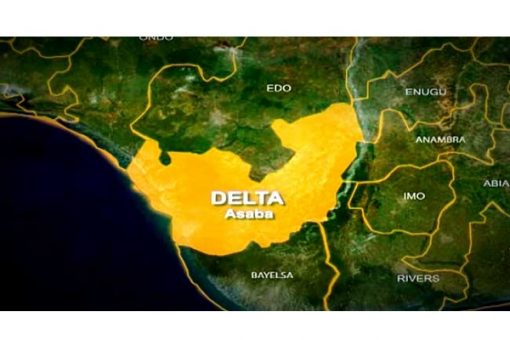A storm is brewing over a piece of land near Asaba International Airport as a United States-based Nigerian, Jude Maduka, finds himself entangled in a fierce dispute that has now reached the doorstep of the Delta State Police Command.
With claims and counterclaims flying, the saga underscores the precarious nature of land ownership in the region, leaving many questioning the security of real estate investments.
In a formal petition dated February 7, 2025, Maduka, through his legal counsel Chidel Onuora, called on the Delta State Commissioner of Police to intervene swiftly in what he describes as an unlawful encroachment on land he legally purchased in 2017. The property in question, initially sold to him by Dr. Darlington Ijeh—now the state’s Commissioner for Culture and Tourism—has become a bone of contention, with new claimants allegedly emerging out of nowhere.

Maduka recounted his shock and frustration when he attempted to commence development on the land, only to be confronted by individuals who insisted they had rights over the property. As tensions mounted, he sought the intervention of Dr. Ijeh, expecting clarity and resolution. However, to his dismay, the commissioner allegedly became unresponsive, ceasing communication altogether.
According to his lawyer, repeated attempts to engage Ijeh in discussions have hit a dead end. “Our client has reached out multiple times, both informally and through legal correspondence, yet there has been no response. The silence from Mr. Ijeh is both puzzling and worrisome. Maduka is merely an investor trying to contribute to the state’s development, and it is disheartening that he is being subjected to this ordeal. If potential investors are met with such experiences, it raises serious concerns about the ease of doing business in Delta State.”
As the situation escalates, Dr. Ijeh has now broken his silence, offering a different perspective on the matter. He insists that Maduka has neglected a crucial step in the transaction—ratifying the land with the Umuodafe Family, the original custodians who have since secured a Supreme Court judgment regarding the property. He questions why Maduka has chosen a legal confrontation rather than engaging in a reconciliation process with the family.
“If there’s truly an issue with the land, shouldn’t he go there and assert his claim? If he faces resistance, he should turn to the person who sold it to him for clarification,” Ijeh argued. “Instead, he has ignored my calls, even blocking me at one point. I was the one urging him to settle matters with the family, but he refused. Now, instead of resolving the issue directly, he is involving the police.”
Ijeh’s defense paints a picture of an unresolved transaction rather than an outright case of land grabbing. “Has he made all the necessary payments? Has he fulfilled his obligations? Rather than taking the right steps, he wants to escalate things by dragging the authorities into a situation he can simply fix by engaging with the rightful owners. The Supreme Court judgment is clear—the family owns the land. He needs to come for ratification instead of trying to create unnecessary tension.”
With both sides standing their ground, the case has now taken on legal dimensions that could potentially shape future land transactions in Delta State. Land ownership disputes are nothing new in Nigeria, where unclear documentation, shifting claims, and power plays often complicate property rights. For many investors like Maduka, the experience is a stark reminder that even legitimate purchases can become mired in controversy.

The police, now drawn into the unfolding drama, face the challenge of ensuring that the dispute does not spiral into a full-blown crisis. Community leaders and legal experts are also weighing in, emphasizing the need for clearer land ownership frameworks to prevent similar conflicts. Meanwhile, Maduka remains determined to reclaim what he believes is rightfully his, while the Umuodafe Family and Dr. Ijeh maintain that due process must be followed.
As the tension simmers, all eyes are on how the authorities will handle this high-stakes property dispute. Will the police’s intervention bring about a peaceful resolution, or is this just the beginning of a prolonged legal battle? Time will tell, but one thing is certain—land disputes in Nigeria are never as straightforward as they seem.



